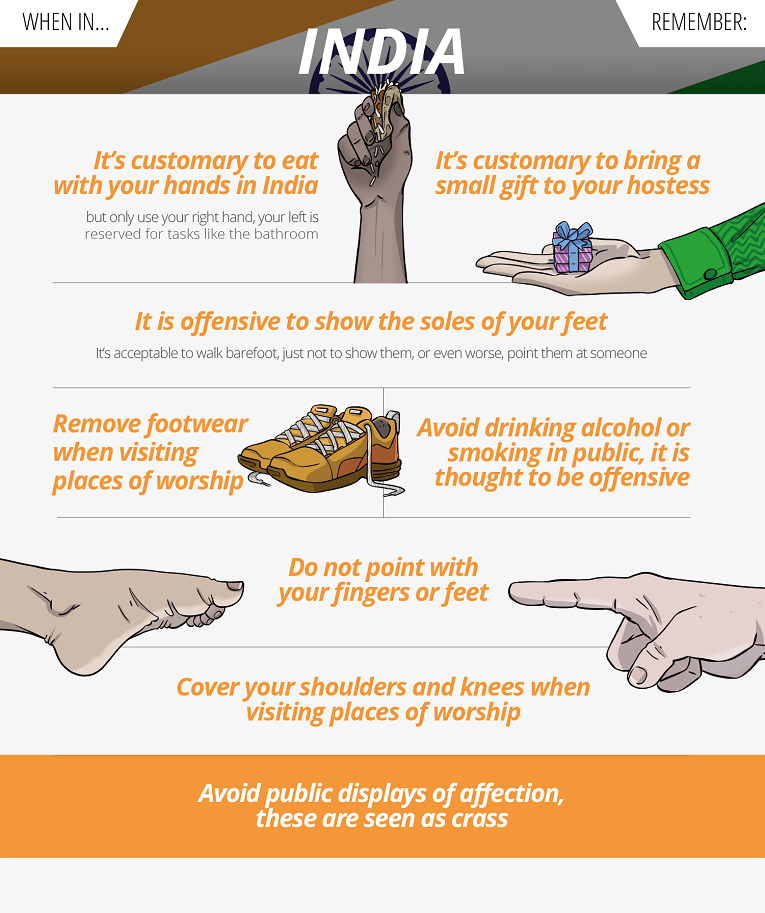New research reveals that over 20 per cent of Brits don’t research local customs and traditions before they go abroad.
This can lead to some troublesome travel gaffs like leaving your chopsticks standing in your food while in China or refusing a coffee in Dubai.
It’s especially important for business travellers as the first impression is vital in wowing their international contacts.
Sidestep the embarrassment by researching the ways of your destination before you set off. These tips from Travelbag will come in handy too.
Japan
Food is central to Japanese culture so naturally there are a few finer points of etiquette to mention. Be careful not to cross your chopsticks or say no to a drink, but it’s perfectly fine to slurp your noodles up. Just don’t take them on the go with you.
Remember to bow to those you meet as it’s considered to be a sign of respect.
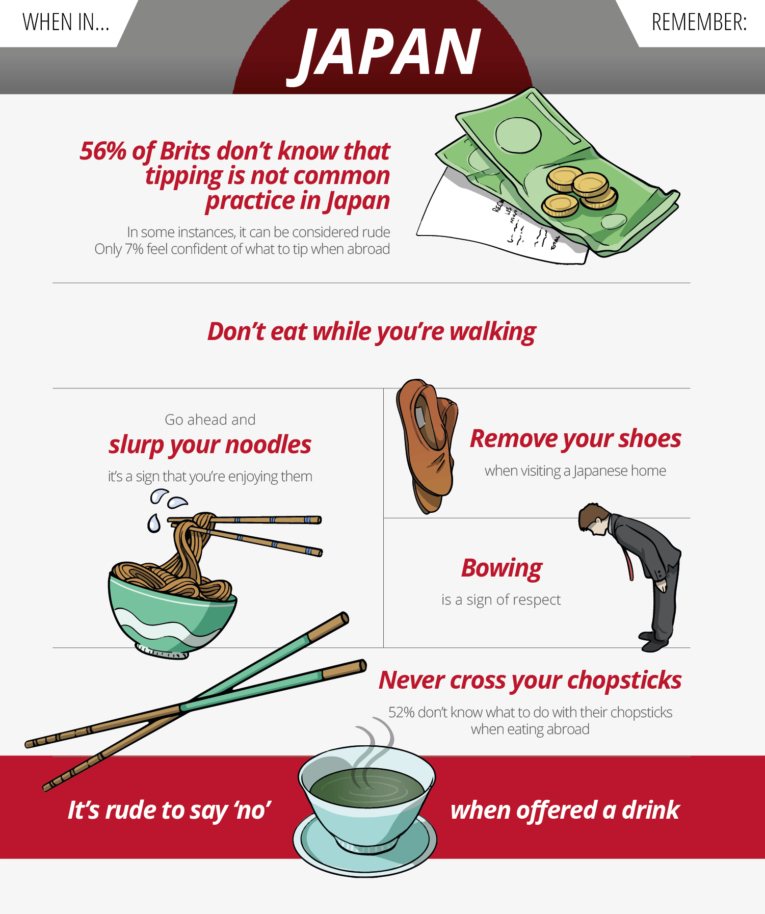
Australia
Hop in the passenger seat next to your driver – it signals friendliness and a willingness to chat. However, you shouldn’t be as forthwith when crossing the street as you could get a fine if you skip the green man.
And if that person across the road is swearing at you, it might mean that they actually like you.
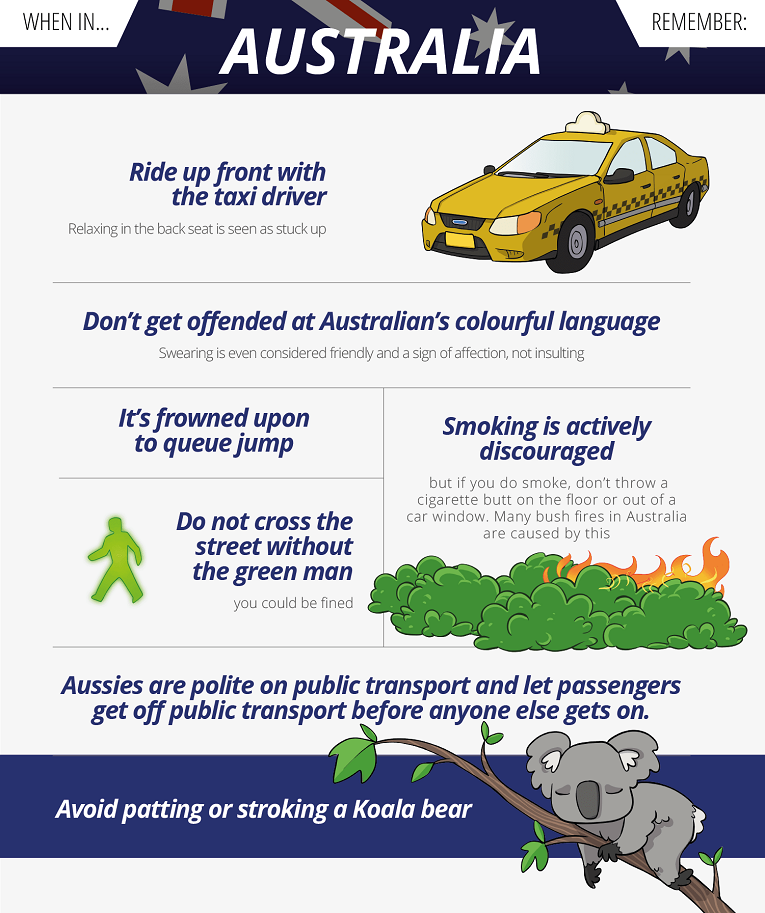
Dubai
Like Japan, it’s custom to leave your shoes at the door. It’s less common in formal settings, but it’s best to err on the side of shoeless – no matter how much those kicks cost. While they’re exposed, don’t show off the soles of your feet. They’re considered unclean, so a gesture where you flash your sole could be seen as insulting.
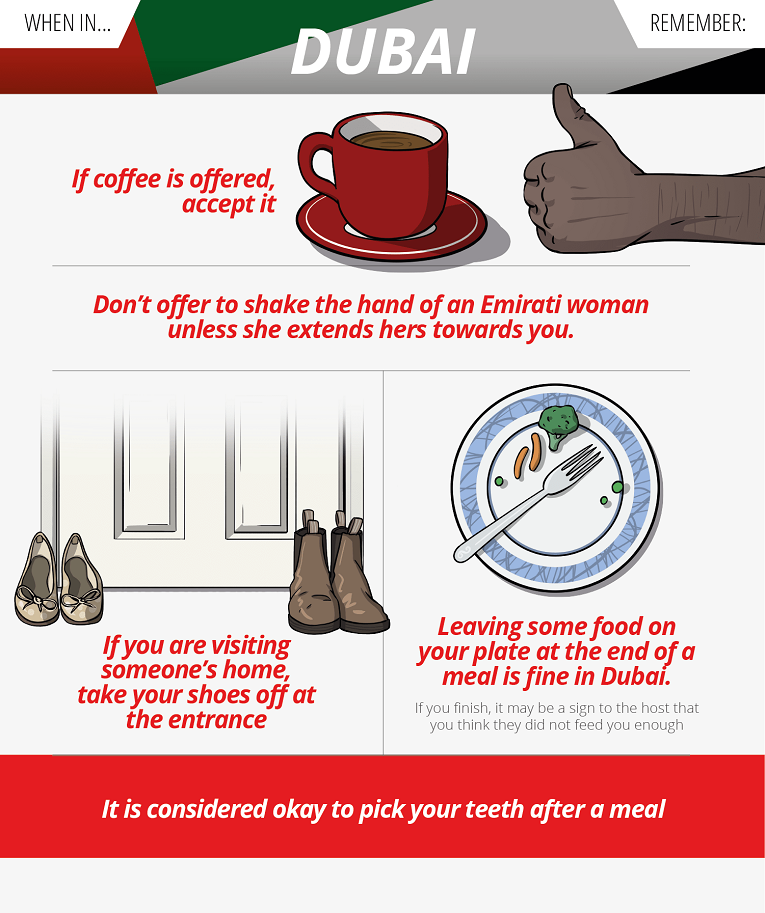
Mexico
Business contacts should be fine, but in certain parts of Mexico, be wary of who you make eye contact with. Take it easy when discussing deals too as being pushy is considered rude.
Be warned that the more open Mexicans will stand closer than British people normally find comfortable while having a conversation. Try not to be alarmed.
Oh, and expect a lot of food while you’re there.
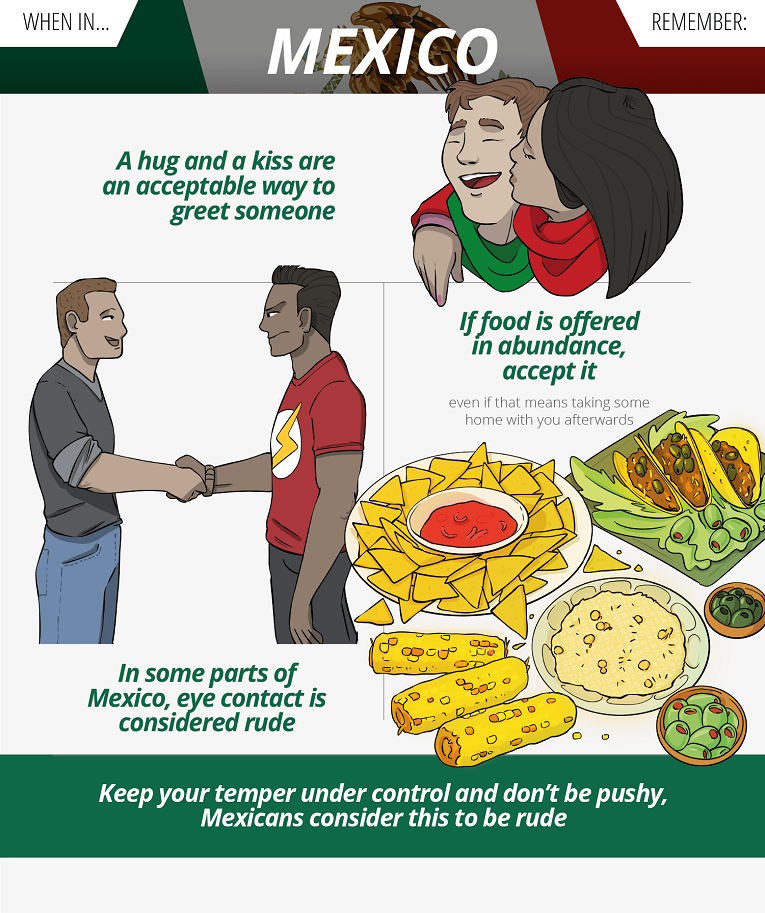
Thailand
Try not to raise your voice in Thailand as it’s frowned upon. No cracking jokes about the Royal Family either: far from being harmless fun, it could actually land you in prison.
It’ll feel very unnatural, but Thai people only eat with spoons or chopsticks as most of their national dishes are curry or rice. Even if you have a fork, it’s there to help you shovel food onto the spoon. Don’t put it in your mouth!
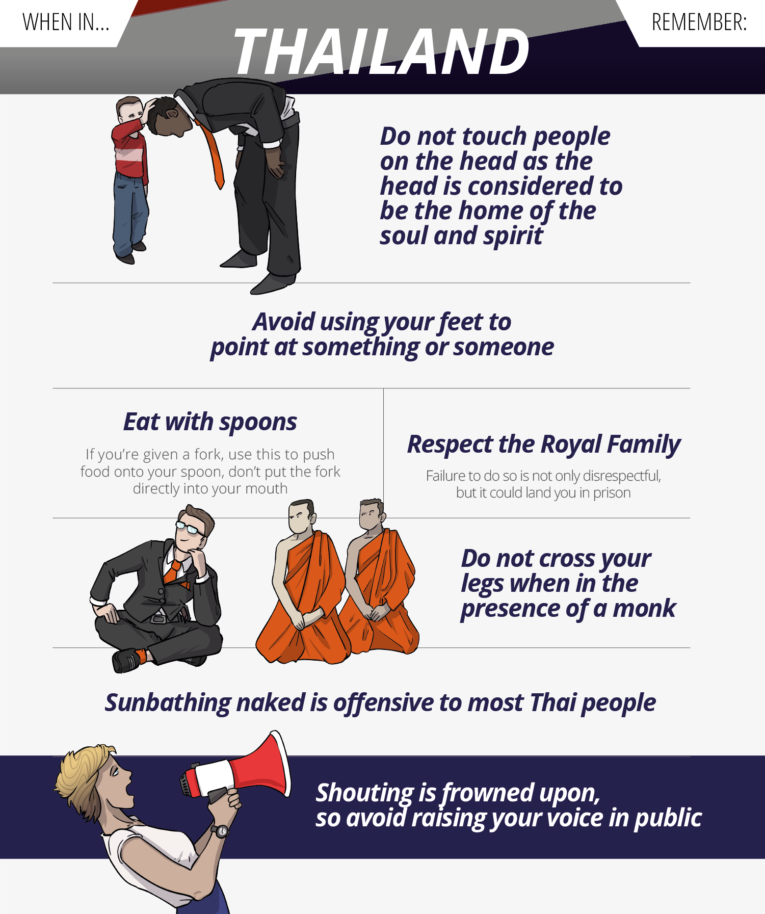
China
The number eight is lucky here so it’s widely favoured by businesspeople. Eight is pronounced as ‘ba’, which sounds similar to ‘fa’, and means wealth, fortune or prosperity. If you have a gift for your host, aim for something which comes in a set of eight. Just don’t dish out clocks as these denote death.
When it comes to dining, there are a lot of rules to remember. Watch what you do with those chopsticks – never leave them upright in your food or use them to gesture at someone (use your whole hand to do that). Don’t worry, you can relax at the end of the meal and let out a burp. It’s a sign that you enjoyed it.
And like Japan, tipping is considered to be an insult in many establishments, so it’s best avoided.
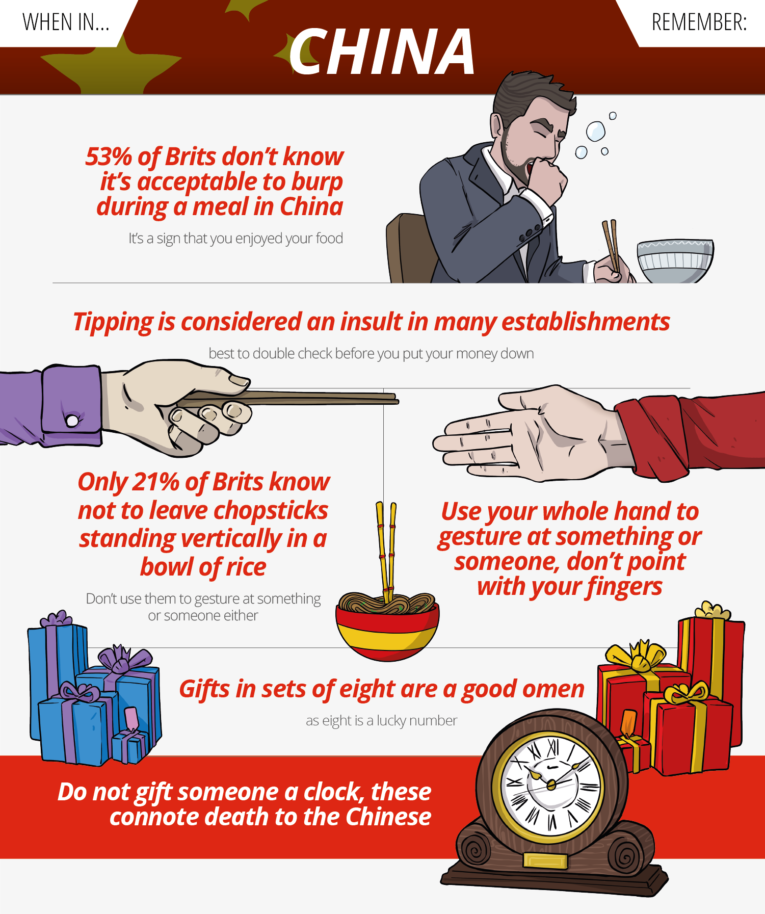
India
Be careful about lighting up a cigarette in public and if you’re visiting a place of worship, take something to cover up your knees or your shoulders.
Remember to eat with your right hand only – the left is reserved for personal hygiene tasks. If you’re eating at someone’s house, bring the hostess a little gift.
There are 22 official languages spoken across India and each language has multiple dialects, so make sure you learn the basics of the right language before you head off.
